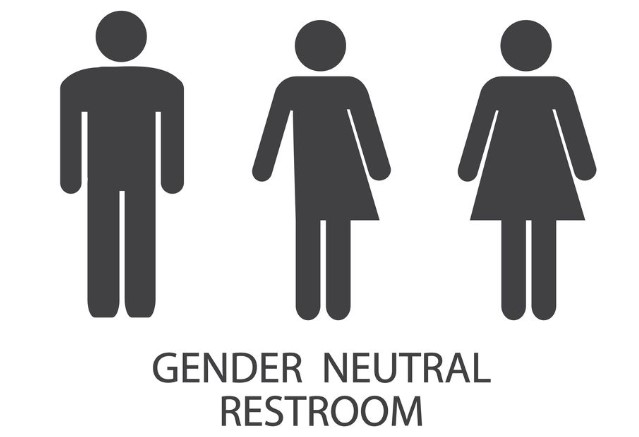In a passionate exchange that unfolded within the Broward County Commission chambers, the lines of politics and culture blurred, emphasizing the contentious nature of issues surrounding gender identity. The clash pitted LGBTQ activist Michael Rajner against Black Broward County Commissioner Robert McKinzie, underscoring the complexity of the debate.

Rajner, a prominent LGBTQ political advocate and chair of the county’s Human Rights Board, stood before the commissioners, imploring them to expedite the installation of unisex restrooms in county facilities. His plea was rooted in a newly enacted Florida law that restricted bathroom access for transgender individuals, compelling them to use restrooms corresponding to their assigned biological sex, with trespassing charges looming if they refused.
To drive his point home, Rajner drew a poignant parallel to the acclaimed film “Hidden Figures.” The movie portrayed the hardships faced by Katherine Goble, a Black mathematician integral to NASA’s early 1960s efforts, who endured the indignity of walking a half-mile to a segregated restroom. McKinzie, however, took offense to this comparison, arguing that restroom usage was a choice for transgender individuals, distinct from the racial segregation faced by Black Americans during Jim Crow.
McKinzie’s sentiments resonate with many in the African American community, who feel that comparing LGBTQ struggles to their own diminishes the unique challenges they have faced. Historically, Black Americans had no option but to use segregated facilities. Transgender issues have become a contentious battleground in Florida, with conservative policies enacted on various fronts, including school athletics, gender-affirming care, and restroom access.
Florida Governor Ron DeSantis has actively championed these policies, potentially to gain support in the 2024 Republican presidential primaries. The result has been a regression in transgender civil rights, deeply distressing LGBTQ activists who had been making strides in their fight for equality.
This political divide not only energizes the conservative base but also creates discord among Democrats. McKinzie and Rajner, both Democrats, exemplify this divide, representing two essential Democratic voting blocs: Black voters and LGBTQ voters. The tensions echo discussions in academic settings, where some argue against comparing LGBTQ struggles to those of Black Americans.
The crux of the matter lies in the recently enacted “Safety in Private Spaces Act,” which mandates gender-specific restrooms and penalizes those who enter facilities not matching their assigned biological sex. Public opinion on this matter varies, with a Pew Research Center poll revealing that 41% of U.S. adults support such policies, while 31% oppose them.
Older adults are more likely to support these restrictions, and Republicans are three times as likely as Democrats to endorse them. Broward County currently boasts 66% of its facilities with unisex restrooms, with a goal of expanding this number to all facilities by 2027.
Despite the polarizing debate, both sides acknowledge the need for continued dialogue and education. Tatiana Williams, an African American transgender woman and advocate, emphasized the importance of understanding transgender experiences, dispelling the notion that their lives are merely a choice.
Rajee Narinesingh, a transgender community activist, shared her personal experience of workplace discrimination before transitioning, revealing the profound impact it had on her self-esteem. She urged empathy and compassion for the transgender community, underscoring the emotional toll of exclusion.
In the end, the battle for transgender rights in Florida is far from over. The clash between Rajner and McKinzie exemplifies the broader struggle to reconcile diverse perspectives, with the hope that understanding and acceptance can pave the way for a more inclusive future
